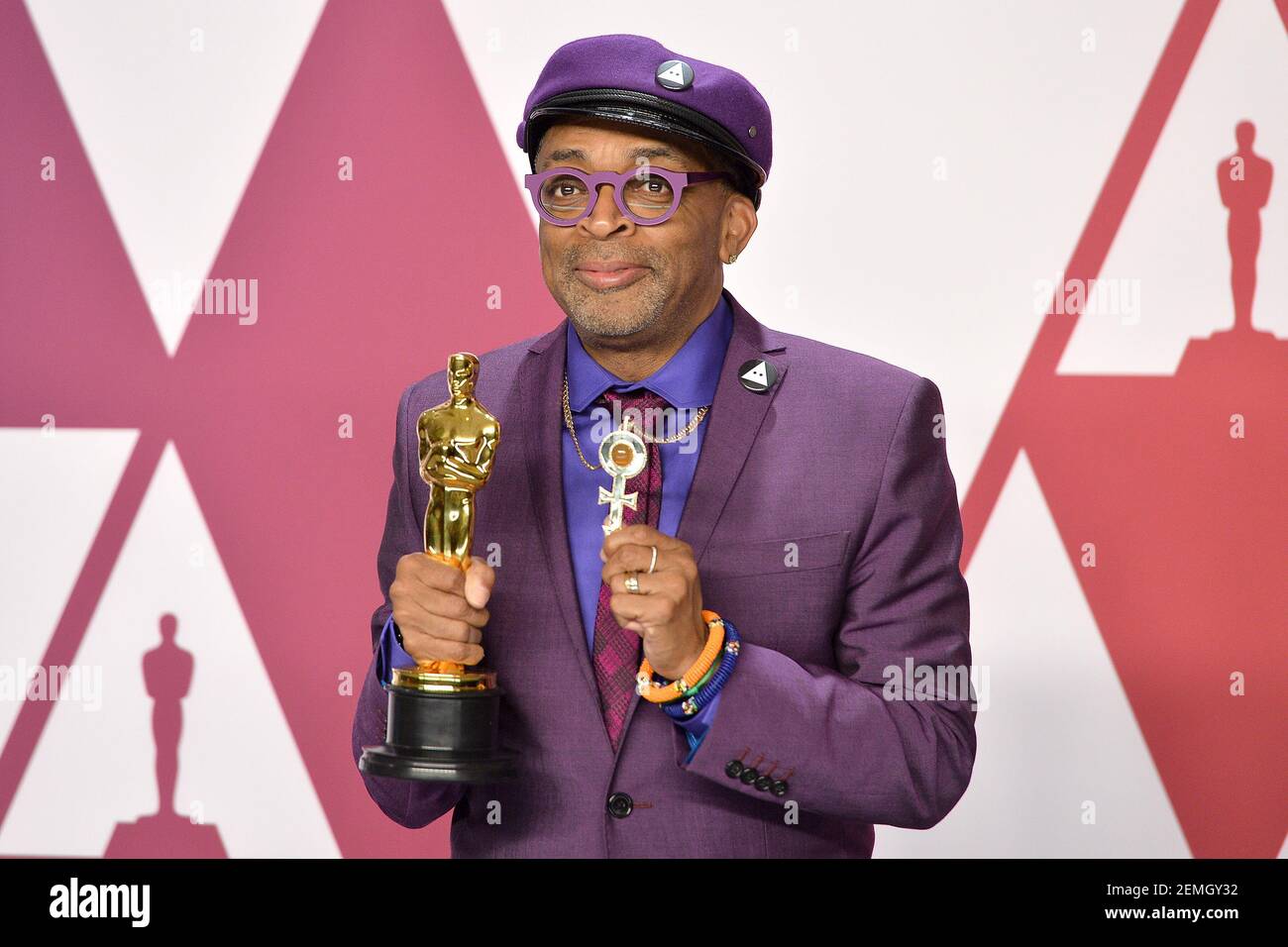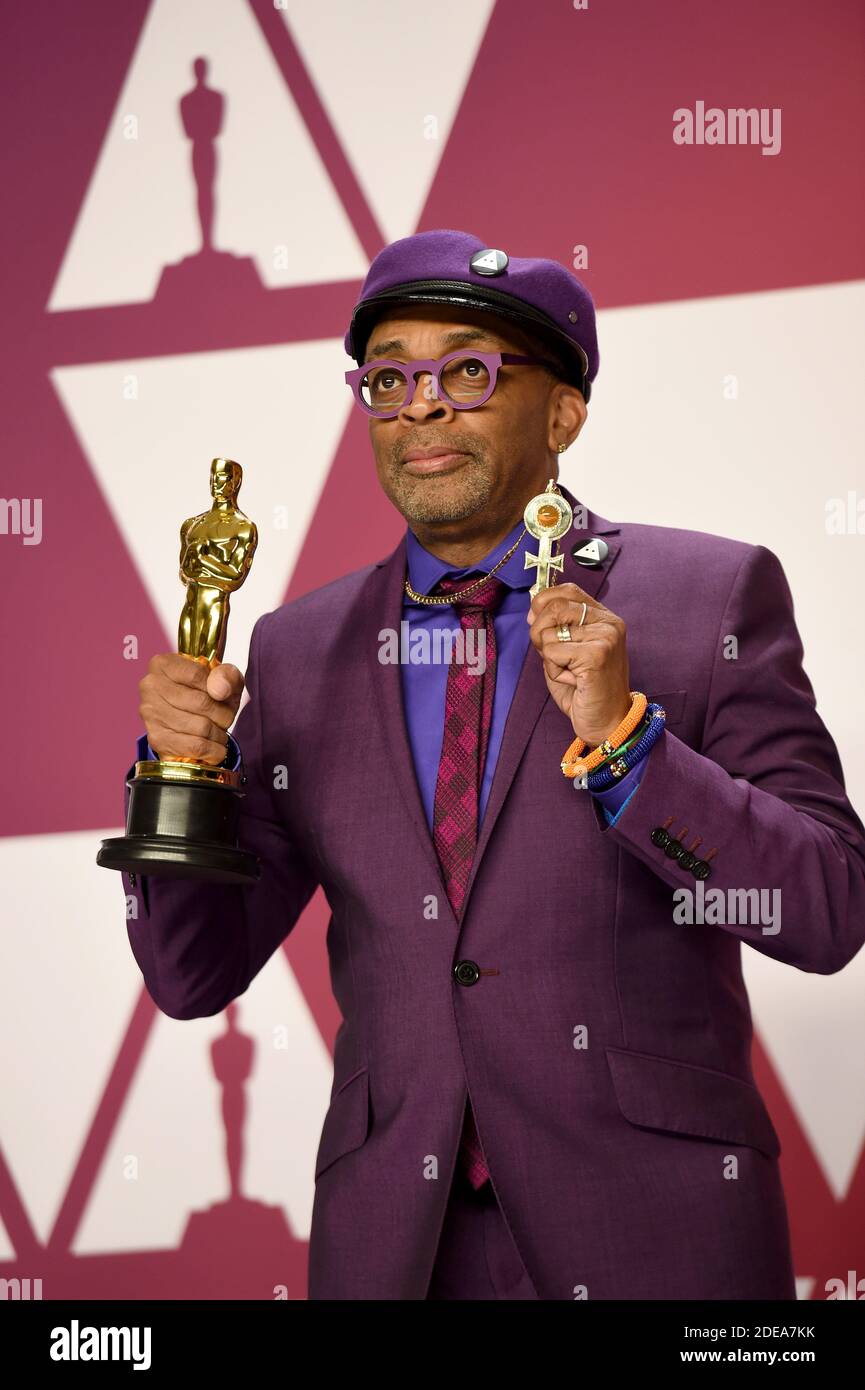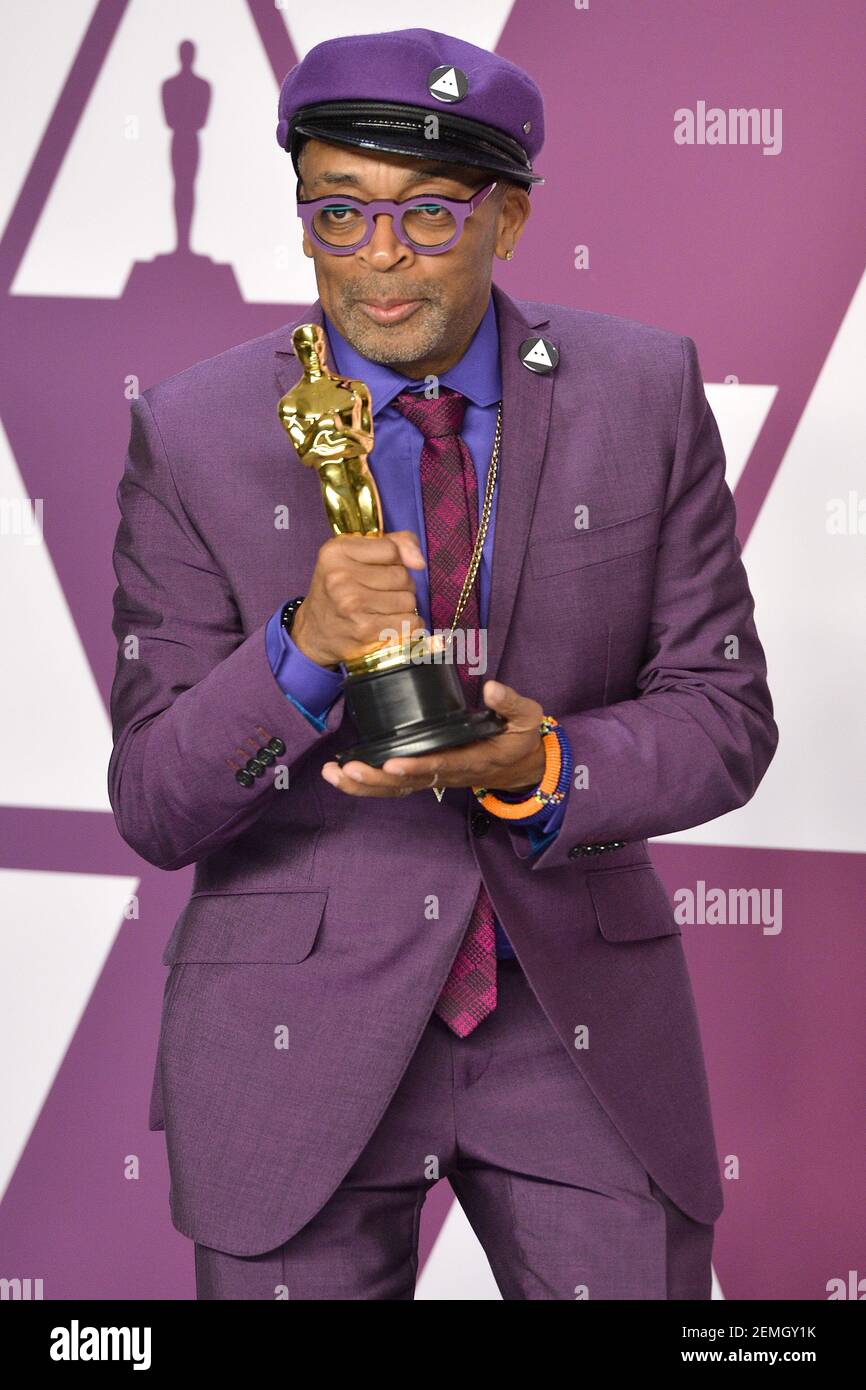After decades of cinematic brilliance, could it be that Spike Lee, the visionary director, hadn't secured a competitive Academy Award until now? On a memorable Sunday night at the 91st Academy Awards, the answer definitively shifted: Yes, and it was a moment long-deserved.
The date was February 24, 2019. The location: the iconic Dolby Theatre in Hollywood, California. The occasion: the annual celebration of cinematic achievement, the Oscars. On this star-studded night, Spike Lee finally received his first competitive Oscar, a moment that resonated not just with fans of his work, but with the entire film community. The award, for Best Adapted Screenplay, was for his masterful adaptation of Ron Stallworth's 2014 memoir, "Blackkklansman". This win, however, was not Lee's first encounter with the Academy. In 2015, he was awarded an honorary Oscar, a testament to his profound influence on the art of filmmaking. Yet, this night was different. It was a validation of his competitive work, a recognition of the enduring power of his storytelling.
| Category | Details |
|---|---|
| Full Name | Shelton Jackson "Spike" Lee |
| Date of Birth | March 20, 1957 |
| Place of Birth | Atlanta, Georgia, U.S. |
| Occupation | Film Director, Producer, Screenwriter, Actor, Professor |
| Known For | Directing films that address race relations, urban issues, and political themes |
| Notable Works | Do the Right Thing (1989), Malcolm X (1992), 25th Hour (2002), Inside Man (2006), BlackKklansman (2018), Da 5 Bloods (2020) |
| Awards |
|
| Education |
|
| Reference | IMDB |
The ceremony itself became a "Spike Lee Joint," as his films are often called, a testament to his distinctive style. The energy was palpable as Lee's name was announced, the culmination of a career defined by its unflinching gaze on the complexities of the human experience. His films, often challenging and provocative, have consistently sparked dialogue and pushed boundaries. "Blackkklansman", the film that earned him the coveted Oscar, exemplifies this perfectly, telling the true story of an African American detective who infiltrates the Ku Klux Klan. The film's impact, a gripping narrative and powerful social commentary, resonated with audiences and critics alike.
- Edward Bluemel A Royal Performance In The Crown
- The Ultimate Jimmy Osmond Guide Uncovering The Legends Life And Career
That night, the Governors Ball, held at the Hollywood & Highland Center, was a vibrant celebration of Lee's achievement. He was seen throughout the evening, both in the press room, where he posed for photographs, and at the after-parties, celebrating the culmination of his long journey. The award was presented by Samuel L. Jackson, a long-time collaborator and friend, adding an emotional layer to the already momentous occasion. The image of Lee and Jackson, standing together on the stage, embodied a partnership forged in artistic integrity and mutual respect, became an iconic visual representation of a cinematic milestone.
Lee's work has consistently focused on African-American life, race relations, politics, and social justice. He has never shied away from tackling difficult subjects, and his films have frequently served as a catalyst for important conversations. In the wake of his Oscar win, many praised Lee's persistence and the importance of his voice within the industry. The award was not just a personal victory for Lee; it was a significant moment for diversity and representation within the film industry. The win acknowledged his impact on cinema and the vital conversations his films promote.
The night wasn't just about Lee. It was also a celebration of the collaborative effort that goes into filmmaking. The adapted screenplay award was shared with his co-writers, Charlie Wachtel, David Rabinowitz, and Kevin Willmott, further underscoring the spirit of teamwork and the communal nature of artistic endeavors. The success of "Blackkklansman" was a collective achievement, a reflection of the creative input and dedication of everyone involved.
- Dakota Fannings Husband Her Married Life Unveiled
- Gleb Savchenkos Amazing Journey On Dancing With The Stars
The impact of "Blackkklansman" extended beyond the screen. It spurred conversations and debates about racial injustice, police brutality, and the ongoing struggle for civil rights. Lees win was, in a sense, a call to action, a reminder of the power of art to provoke, educate, and inspire. The film's critical acclaim and commercial success affirmed the importance of diverse voices and stories in mainstream cinema.
The 91st Academy Awards were a showcase of talent and triumph. Alongside Lee, other notable winners, such as Rami Malek for Best Actor in "Bohemian Rhapsody" and Mahershala Ali for Best Supporting Actor in "Green Book," illuminated the night. Yet, Lee's victory held a special significance, a culmination of decades of dedicated work. As Lee accepted the award, the moment felt like a historical turning point, a moment of significant acknowledgment from the Academy.
The recognition Lee received reflects the evolution of Hollywood and the expanding appreciation for diverse storytelling. In 2019, the Academy recognized not just a director but an architect of important narratives that reflect real-world experiences. His victory serves as an inspiration to aspiring filmmakers, particularly those from underrepresented communities, showing them that their voices matter and their stories deserve to be told.
Beyond the glitz and glamour of the red carpet, the significance of Lee's win lies in its enduring legacy. His work will continue to resonate with audiences for years to come, offering insight into the complexities of society. The award serves as a testament to the enduring power of cinema to inform, engage, and transform. Spike Lee, an Oscar winner, forever cemented his place in cinematic history on that memorable night, February 24, 2019, at the Dolby Theatre in Hollywood.
The evening wasnt only about the awards. It was a gathering of the most talented individuals in the film industry, from actors to directors to producers. The ceremony was a celebration of cinematic achievements and a representation of the collective efforts that make films possible. The Governors Ball that followed was a moment of pure celebration, as stars mingled and honored the best and brightest in film.
The Best Adapted Screenplay win for "Blackkklansman" wasnt just a personal achievement for Lee; it was a victory for the entire team who had put their passion and skills into the film. This collaborative effort helped to bring the story to life. The award was a testament to their work, and their talent was honored that night. Lee, along with his co-writers, and the entire cast and crew, were able to celebrate their accomplishment. The evening was a night of triumphs and a mark of the heights that the film industry can reach.



Detail Author:
- Name : Harry Konopelski Sr.
- Username : hegmann.dejon
- Email : rau.janet@hotmail.com
- Birthdate : 1982-02-18
- Address : 182 Art Flats Goodwinburgh, MO 89548
- Phone : 480-652-0450
- Company : Littel PLC
- Job : Civil Engineering Technician
- Bio : Laudantium minima pariatur omnis distinctio ea nobis ipsum recusandae. Id et et maiores tempore. Vel quia et dicta aliquid voluptates. Provident rerum ex magnam et aperiam quod sit.
Socials
tiktok:
- url : https://tiktok.com/@kaylin_official
- username : kaylin_official
- bio : Eum ipsa aliquid autem vel. Sint distinctio harum magni.
- followers : 4003
- following : 1294
facebook:
- url : https://facebook.com/kaylin_roberts
- username : kaylin_roberts
- bio : Voluptas officiis perspiciatis ex ea expedita. Eaque officiis enim ipsa porro.
- followers : 3471
- following : 1511
twitter:
- url : https://twitter.com/roberts2005
- username : roberts2005
- bio : Excepturi earum quo at dolorem quaerat aliquid facilis. Dolorem commodi optio quas corrupti sit. Deserunt impedit fuga quam facilis laborum.
- followers : 5770
- following : 463